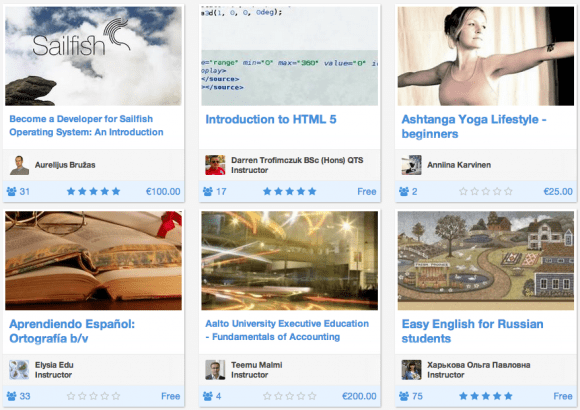 Finland has such a powerful education brand that about a year ago we wondered why more Finnish companies aren’t capitalizing on that brand when it comes to education. Essentially we were asking, where were Finland’s powerhouse EdTech companies that were making some noise and showing traction?
Finland has such a powerful education brand that about a year ago we wondered why more Finnish companies aren’t capitalizing on that brand when it comes to education. Essentially we were asking, where were Finland’s powerhouse EdTech companies that were making some noise and showing traction?
One of the companies posted in the comments there was Eliademy, an online e-learning platform that now says it has seen 50,000 users without any push into marketing.
The company has also picked up some money from Inventure. CEO Sotiris Makrygiannis of CBTec, which has created Eliademy, wasn’t willing to share the funding details, which begs the question “well, why not?” but he did say with the funding Eliademy hopes to hire 10 people over the next six months, and to use this seed round to support their hopeful €4 million series A by the end of the year.
Previously the company has been bootstrapped and is making some revenue from paid services, and last year posted a €600,000 turnover. Making up those finances, the Eliademy platform sells an enterprise solution for companies to teach, train, and give courses to their employees. And on the traditional education side, Eliademy allows organizations like Universities to create and host online courses for free.
To monetize their free users, the company has opened up a marketplace for courses where anyone could take Aalto University Executive Education – Fundamentals of Accounting for €200, for instance. Many other courses, like Introduction to HTML5 or Easy English for Russian Students are offered for free by instructors, and are open to all.
Browsing the course catalog you can see Eliademy has an international feel to it, and the platform is available in 26 languages. Much of their user growth is coming from the Asian Pacific and Latin America, where Eliacademy’s free and open model looks like a good choice to universities compared to competing education platforms that can charge up to $40/user/year.
“We want to transform the [educational] system,” says Makrygiannis “The new system will be digital, more open, and more affordable. We’ve built the right pipeline in such a way to accommodate a truly global university where the traditional universities can be part of it, and can make their courses available for the billions of users who want it.”




